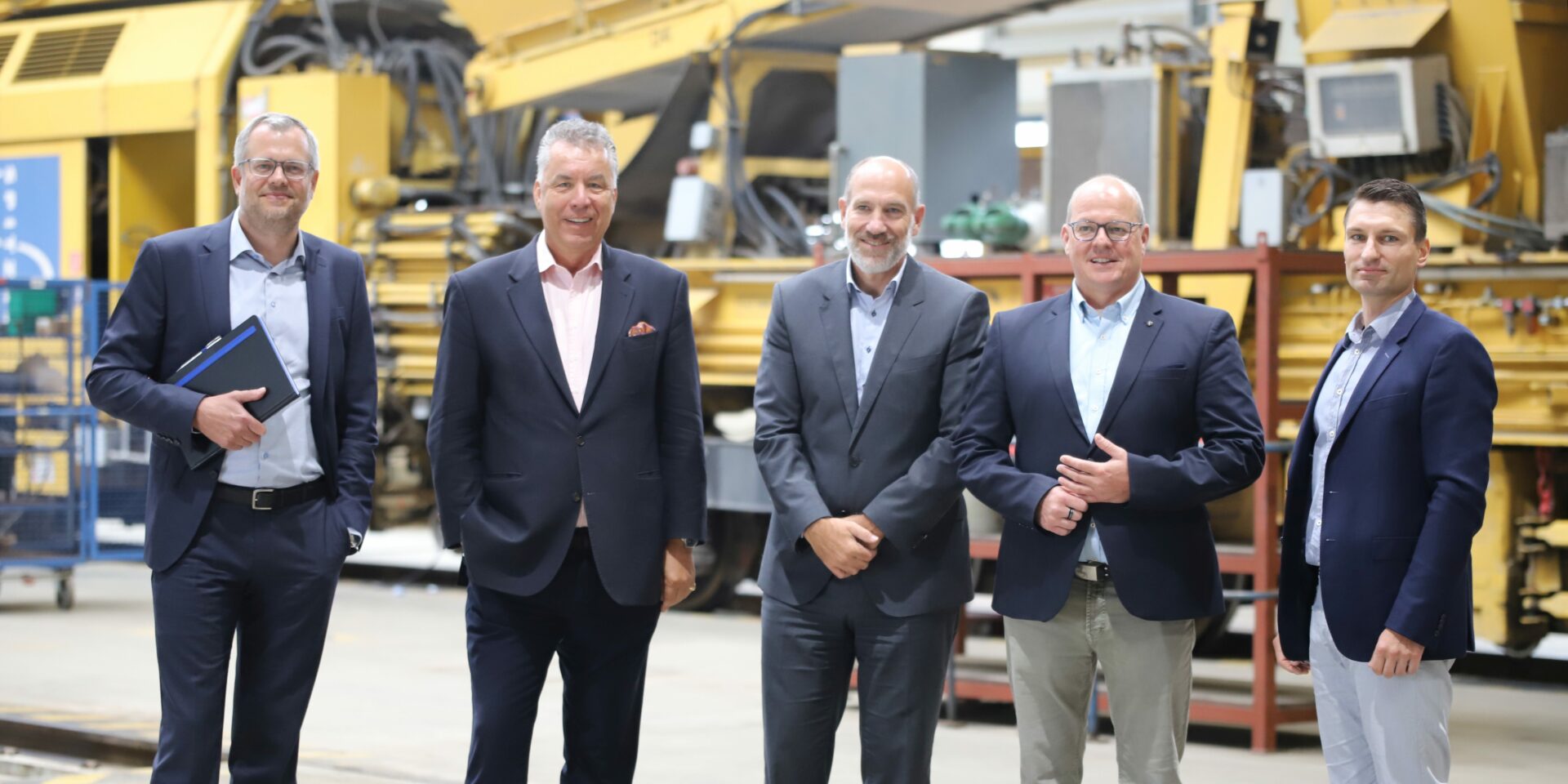
InnoTrans 2022: A conversation with Jens Bergmann from DB Netz AG
On Wednesday (Sept. 21st, 2022 – 3:30 pm – SPITZKE stand – Hall 5.2 – Stand 320) at InnoTrans 2022, Jens Bergmann, Member of the Board of Directors for Infrastructure Planning and Projects and Member of the Board of Directors for Finance and Controlling at DB Netz AG, Dr. Ben Möbius, Managing Director of the VDB, Jan Grothe, CPO of DB AG, Mark Fisher, CTO of SPITZKE SE and Winfried Zuber, Managing Director of WSP Infrastructure Engineering GmbH held a discussion as part of a SPITZKE panel discussion. The topic was “Consistently rethinking about partnership-based, modern, efficient construction!” We asked the panel participants three questions in advance.
Below you can read the first short interview with Jens Bergmann (Member of the Board of Directors for Infrastructure Planning and Projects and Member of the Board of Directors for Finance and Controlling at DB Netz AG).
Mr. Bergmann, rail transportation is considered one of the key elements for sustainable, climate-friendly mobility. What needs to change so that our rail system can fulfill this role well and how can we manage to get significantly more passenger and freight traffic on the tracks in the future?
Customers want reliability. For us, that means above all trouble-free, comfortable and punctual travel/freight transportation. In order for us to become more stable, we need to significantly improve the condition of the equipment immediately, thereby ensuring its fault-free availability. This also requires significant investment in the resilience and growth of the railway network. This is not always about the big projects – now it’s also a question of getting the network equipped quickly with smaller and medium-sized projects. This doesn’t just apply to steel and concrete. It also applies, in particular, to the people who operate and maintain the system. Of course, the change to digital control and safety technology also plays a major role in creating additional capacity. Because additional capacity by means of new construction and expansion often takes many years, we also need to discuss how existing structures can be used more optimally. Among other issues, this also requires modern timetabling systems.
From the customer’s perspective: What contribution can the railway industry make to achieve these goals?
For this growth, we need to increase capacities in planning, construction and development. However above all, we need innovations. Doing the same thing will not be enough to handle the ramp-up! This neither works in terms of available capacities nor in terms of time.
On SPITZKE’s podium discussion, you’ll discuss the topic “Consistently rethinking about partnership-based, modern, efficient construction!” What aspects do you think will be addressed?
For me, partnership-based construction means, in particular, transparency. Everyone participating recognizes project risks at an early stage in their area of expertise. Today, it pays to keep these risks to yourself. We need models where it pays to identify risks together and early on so we can find suitable countermeasures. Everyone has to have a common interest in completing on time and on budget. Today, this transparency is not rewarded enough. Without incentives for this type of collaboration, we will not be able to take advantage of the benefits of innovation working methods, e.g. with BIM.

